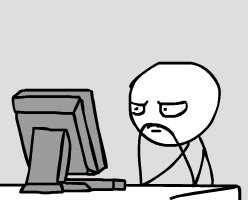Some of you might be wondering why I've been harping on this Apple-DoJ-Amazon anti-trust trial lately. The answer is simple — 1) I'm an author; and 2) the outcome will have huge ramifications for the future of the publishing industry. In fact, if Amazon's growing power isn't checked, I'm not entirely sure the big publishers will survive and I'm dead certain that Barnes & Noble and the other booksellers won't. They're barely surviving now and Amazon is breaking arms to squeeze them for more profit. If the big publishers and booksellers go under, the future of publishing is going to look very different very quickly and I think what comes after might not be very pretty.
What really chaps my hide, though, is Judge Denise Cote.
In July 2013, Judge Cote convicted Apple of illegally colluding with the publishing industry to jack up e-book prices, thereby restoring monopoly power to Amazon (which didn't hesitate to use the judge's gift to start strong-arming Hachette this past month). Apple is appealing the decision and asked the 2nd US Circuit Court of Appeals to stay the damages trial for its conviction until its appeal is heard. The court denied the request.
The Second US Circuit Court of Appeals has rejected Apple's bid to delay a damages trial until after the company has appealed the original decision. As a result, a July court date will go forward with the same judge -- Denise Cote -- who originally found Apple guilty of conspiring to fix e-book prices alongside the publishers in a bench trial last year. Judge Cote will preside over the damages trial as well.
For those who haven't followed the trial, a brief history of Judge Cote's behavior surrounding the affair might be of interest. Hang on and enjoy this little ride.
Before the trial even began, Cote said in public that she thought Apple was guilty, a statement consisted with an alleged historic pattern of pre-trial biases. After rendering the official verdict, she appointed an anti-trust monitor. Michael Bromwich, who:
1) had no previous experience as an anti-trust monitor;
2) who is a "long-time friend"; and
3) who promptly began charging Apple $70,000 per week in fees —$1,100 per hour plus a 15% "administrative fee" plus per diem plus another several-hundred-dollars-per-hour fee to pay the anti-trust monitor advisor who's teaching Bromwich on the fly how to be an anti-trust monitor, to be precise.
Bromwich then immediately exceeded his purview by demanding interrogations of Apple executives who have nothing to do with e-books or Apple's iBookstore and publicly slammed the company when it refused to comply. Apple asked Judge Cote to reign him in and, to no one's surprise, she refused. Apple finally went over her head to the Appeals Court and tried to have Bromwich removed. The Appeals Court didn't take that step, but they did warn Bromwich in veiled terms that he was headed for trouble if he didn't tone it down. Judge Cote didn't even throw Apple that tiny sop.
History lesson over. Back to the present, which is this — instead of withholding punishment while Apple tries to prove it shouldn't be punished because Judge Cote pre-determined the case, the Appeals Court is going to let the very same judge whose conduct is suspect proceed with a damages trial to decide whether Apple has to pay the maximum ~$800 million fine.
Any bets on what her ruling will be?
